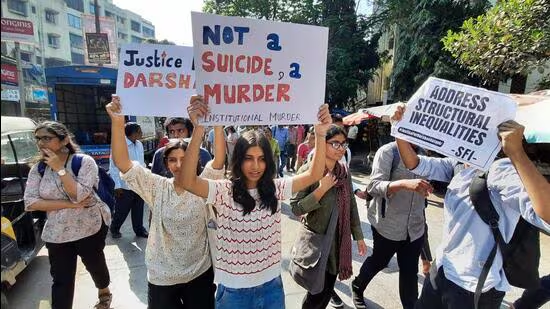In a country where the daily grind often requires bending the rules, India’s legal framework pushes millions into the shadows of criminality. According to a recent article in The Economist, the Bombay Prohibition Act of 1949 is just one glaring example of how the state’s restrictive laws create a culture of law-breaking. The law mandates that one must obtain a permit to consume alcohol, making the simple act of enjoying a cold beer after a long day an illegal offense.
Lawmakers Create a Culture of Criminality
This law is not an isolated incident. India"s central government, alongside its 28 states, has cultivated a legal landscape teeming with regulations that govern everyday life. The result? An environment where nearly every citizen is a potential offender. A first-time violation can result in a hefty fine of 10,000 rupees (approximately $115) and even jail time, disproportionately impacting low-income individuals who can ill afford such burdens.
Punishment Disproportionately Affects Marginalized Communities
As reported by the Maharashtra Excise Manual, the Bombay Prohibition Act was conceived to enforce moral boundaries rather than to ensure public safety. This approach serves to criminalize poverty and societal struggles, as the fines and penalties for violations often lead to deeper cycles of debt and incarceration.
Economic Disparity and Legal Consequences
The ramifications extend beyond legal penalties. The criminalization of basic acts like drinking in public spaces exacerbates existing economic disparities. Those who can’t pay the fines face imprisonment, which further hinders their ability to secure stable employment. This punitive cycle is reminiscent of the U.S. penal system, where low-income individuals are often trapped in a web of fines and fees that lead to lifelong consequences. In India, this trend is similarly troubling, with the enforcement of such laws acting as a barrier to social mobility for marginalized communities.
\n\n
Central Vista Latest News | Project of National Importance
Regulations Create Fear and Distrust
Moreover, the overreach of laws like the Bombay Prohibition Act fosters an atmosphere of fear and distrust between citizens and law enforcement. According to Wikipedia, the enforcement of these laws often leads to arbitrary policing, where officers exercise discretion that can result in abuse. This dynamic not only criminalizes ordinary behaviors but also undermines community trust in public institutions, leading to a vicious cycle of disengagement and hostility.
Calls for Reform and Accountability
Advocates for criminal justice reform emphasize that laws should reflect the values of equity and justice rather than punishment. The current framework, by prioritizing enforcement over understanding, ignores the social realities that many citizens face. As highlighted by the ongoing push for reform across various sectors, including police accountability and prison reform, it’s crucial for lawmakers to reconsider the implications of their regulations. By shifting the focus away from criminalization and towards support mechanisms, India could begin to address the root causes of its social issues.
Global Perspective on Enforcement and Punishment
India"s situation is not unique. Countries around the world grapple with laws that punish rather than protect. This trend raises questions about the effectiveness of punitive systems in addressing social issues. As seen in various global contexts, including the U.S. and parts of Europe, the heavy-handed enforcement of laws often leads to increased social unrest and a lack of faith in governmental systems.
The Indian government’s approach to regulation needs a radical overhaul. By prioritizing community well-being over punitive measures, India can create a more equitable society where laws empower rather than imprison. As societal norms evolve, so too must the laws that govern them. It is imperative for Indian lawmakers to recognize that the enforcement of outdated and draconian laws only perpetuates a cycle of inequality, impacting the most vulnerable citizens the hardest.

Powai police register FIR in Darshan Solanki suicide case | Mumbai news ...







![[Video] Gunfire between Iraqi security forces and Sadr militias in Baghdad](/_next/image?url=%2Fapi%2Fimage%2Fthumbnails%2Fthumbnail-1768343508874-4redb-thumbnail.jpg&w=3840&q=75)
